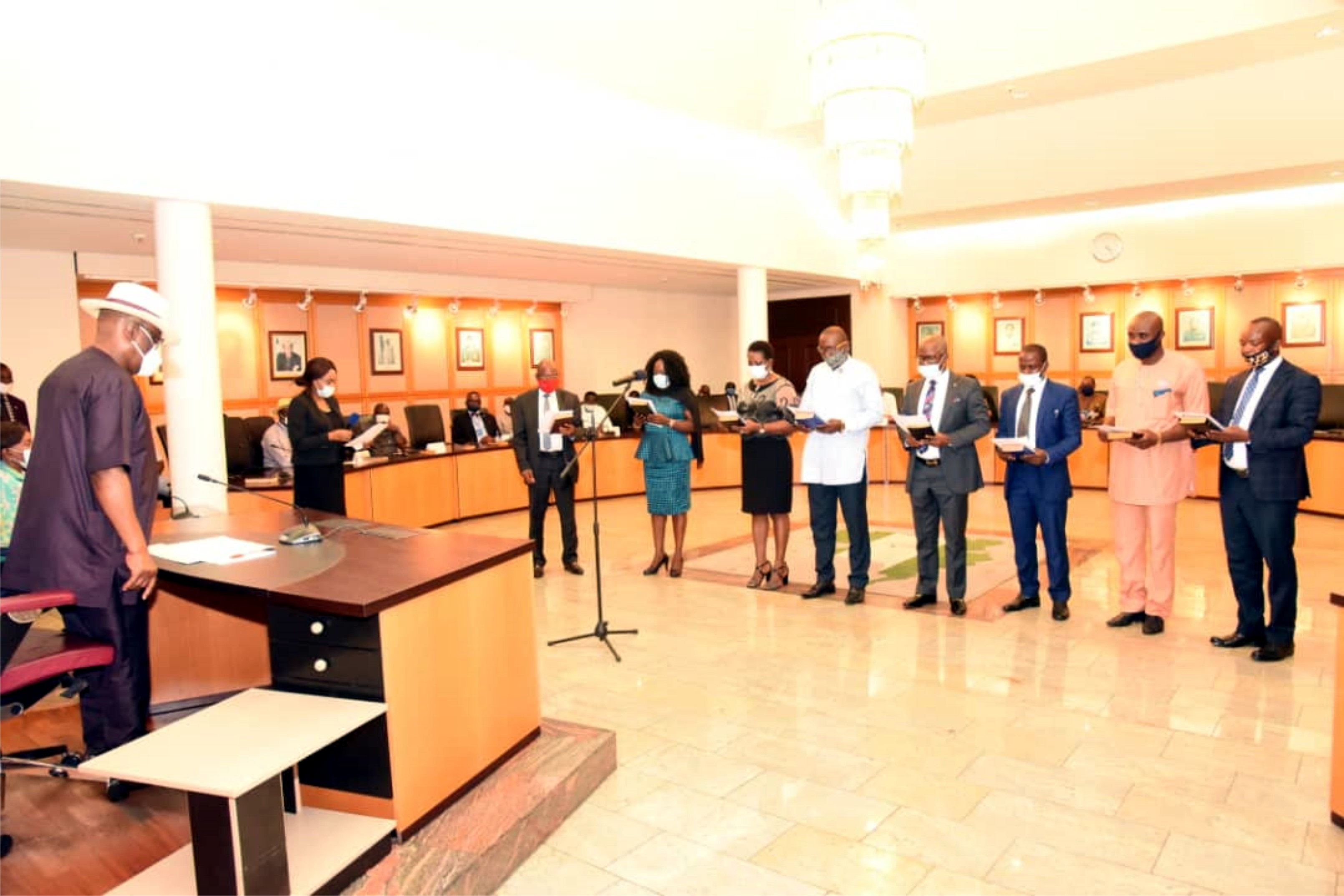Editorial
Task Before RSIEC

Ahead of next year’s local government election in Rivers State, the Governor,
Chief Nyesom Wike, reconstituted the Rivers State Independent Electoral Commission (RSIEC) lately with a clear and specific mandate to conduct a credible election.
While inaugurating the commission at the Government House, Port Harcourt, Wike urged the electoral body to conduct the poll in compliance with the extant Local Government Laws of the state and warned the electoral umpire to desist from being influenced by political interest.
In a statement released by the Governor’s Special Assistant (Media), Kelvin Ebiri, Wike lauded members of the commission for their successful screening by the Rivers State House of Assembly. He advised them to take their new assignment seriously.
Freely admitting the herculean and quixotic task of conducting elections in Nigeria, the governor urged members of the commission to be circumspect and devoted to their duties. He hinted that the inauguration of the new RSIEC became essential following the expiration of the previous chairman and commissioners’ tenure last July.
“It is not an easy job to participate in conducting the election, it is quite tasking. It requires every commitment. It is time-consuming, it is energy-sapping. Sometimes in three days, you will not get home,” he said.
The governor also state, “So many traps will be set for you so that election will not hold. Like I hear people are plotting that the election will not hold. That is not a problem. You do your own work.”
Wike emphasised the need for members of the commission to be indifferent and completely detach themselves from social organisations to prevent being accused of partisanship. He further noted that any member of the commission identified to be a card-carrying member of the Peoples Democratic Party (PDP) would face sudden disqualification.
He said, “Elections must be conducted as soon as possible in compliance with provisions of the Local Government Laws as amended. I don’t know any of you who has a PDP membership card. If I do know, I would not have appointed you”.
Members of the commission are Justice George Omereji, Rtd, (Chairman), Dr Doris Ruhuoma Chukwu; Mrs Chioma Ochia, Dr Hope Barango Tariah, Prof. Lysias D. Gilbert; Barine Akpobari Nwikinanei, Dr Iyeneomie Tamunoberetonari; and Dr Solomon Egbe.
The Tide earnestly endorses the governor’s admonition to the newly-inaugurated RSIEC commissioners and perceives the reconstitution and injection of new blood into the commission under Justice Omereji as, to say the least, apt, appropriate, timely and indeed, heart-warming.
Consistent with His Excellency’s apprisal, we expect the new RSIEC to live up to popular expectancy by remaining apolitical and conducting a valid poll as is customary under Wike, to continually effect a stable democracy in the state, and discredit the ardent critics of the administration. Similarly, we request the governor to honour his promise to abstain completely from interfering with the process.
Without hesitation, the commission should hit the ground running by embarking on voter education, sensitisation and mobilisation. The voter register should be released on time to enable reactions and confirmation of bio-data of voters and collaborate with stakeholders, especially political parties, the media, civil society groups, among others, to achieve the set-out objectives.
Recall that the 2015 local government election executed by the immediate past regime of Chibuike Amaechi was a subject of litigation for aeons following the circumvention of certain provisions of the state electoral law. Accordingly, we charge the new commission to strictly shun such inadvertence and work within the enabling law to avert undue litigations.
We expect them to be transparent in the utilisation of funds and avoid the pitfalls which caused the removal of six former members of the commission by the state government. Certainly, with a team spirit, the new RSIEC will set the standard for a satisfactory local government poll that will be most acceptable and stand the test of time. The tasks before them may be quite enormous, but not insurmountable.
It is important for the state that this election is credible. Thus, we call on all stakeholders, especially the political parties, security agencies and the electorate, to support and cooperate with the electoral body in this onerous task of organising a standard local government election for Rivers people.
Editorial
Resolve Rumuwoji Market Issues, Others

Editorial
As NDG Ends Season 2

Editorial
Beginning A New Dawn At RSNC

-
Politics4 days ago
2027: NIGERIANS FAULT INEC ON DIGITAL MEMBERSHIP REGISTER DIRECTIVE
-

 Environment4 days ago
Environment4 days agoLAWMA Director Says Sweeping Reforms Have Improved Waste Collection
-
Politics4 days ago
LP Crisis: Ex-NWC Member Dumps Dumps Abure Faction
-

 Politics4 days ago
Politics4 days agoUmahi Dismisses Allegations On Social Media, Insists On Projects Delivery
-

 Sports4 days ago
Sports4 days agoAbia Not Sure To Secure continental Ticket
-
Politics4 days ago
NATASHA ELECTRIC VEHICLES INITIATIVE IN KOGI CENTRAL
-
Sports4 days ago
La Liga: Yamal Records First Career Hat-trick
-

 Sports4 days ago
Sports4 days agoPSG Extend Lead In Ligue 1

